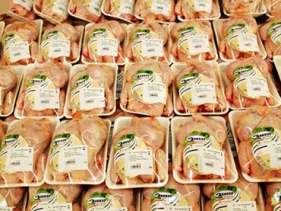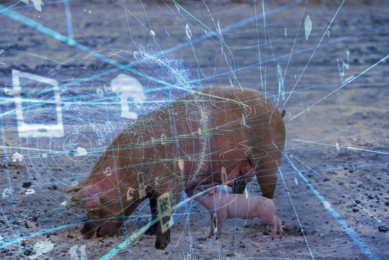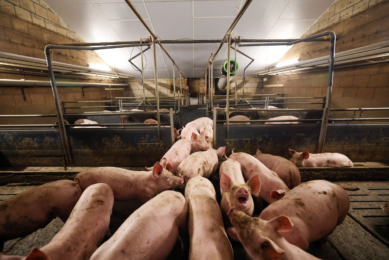Russia expects increase in poultry and pork production

Russian officials have said that plans are in place to raise output of poultry meat and pork this year, without mass slaughtering, as it has sufficient animal feed even in spite of last year’s drought, which cut feed grain output.
In February, the US department of Agriculture said that Russia will experience a shortage of feed supplies in 2011 due to the severe 2010 drought.
However, officials said that Russia did not feel shortage of feed grain. "There is no deficit," Agriculture Minister Yelena Skrynnik told reporters on the fringes of an agriculture conference.
"We are selling grain from the government intervention stocks. We are coping with the situation. And several regions have refused to take this grain, as they have resolved their problems."
The government is selling feed grain to drought-hit regions at a price, which is some 30% lower than the current market prices.
Skrynnik said that some 700,000 tonnes of feed grain will be ready for sale by the end of this week.
Fears diminished
The government and analysts feared that shortage of feed grain could result in a mass slaughtering of animals. But their fears appeared not to materialise.
"We do not see any panic slaughtering," Sergei Yushin, head of the National Meat Association lobby group, told Reuters.
"The slaughtering proceeds as normally. If there were mass slaughtering, the market would be filled with beef. But we do not see that."
More poultry
Poultry meat production is expected to rise to 3.15 million tonnes in 2011 from 2.83 million in 2010," Galina Bobylyova, general director of the Russian Poultry Breeders Union and industry lobby, said.
She told an agricultural conference that Russian poultry meat consumption will be practically unchanged this year at 3.495 million tonnes compared to 3.491 million in 2010.
Imports will shrink to 390,000 tonnes from 688,000 tonnes last year and include 350,000 tonnes official tariff and 40,000 tonnes will be imported from Belarus free of duty, due to the customs union between these countries and Kazakhstan.
Import quota down
"Production will rise by another 300,000 tonnes next year and we will ask the government to cut the (2012) quota to no more than 200,000 tonnes," Bobylyova said.
Russia regulates meat imports with tariff quotas, under which suppliers may ship determined volumes at a discount import tariff.
The poultry import quota was set at 350,000 tonnes for 2011, down from 780,000 tonnes set for 2010.
More pork output
Output of pork will rise to 2.428 million tonnes this year from 2.312 million in 2010, Yuri Kovalyov, Chief Executive of the National Pig Breeders’ Union, told the conference.
"But the share of pork produced by large plants will increase to 55% of the total output, while the share of backyard farms will fall as they have less means to resist African swine fever."
African swine fever (ASF), a viral disease lethal to pigs, has been confirmed at various small farms mainly in the south of the country. It has not affected any big farms so far.
Source: Reuters











